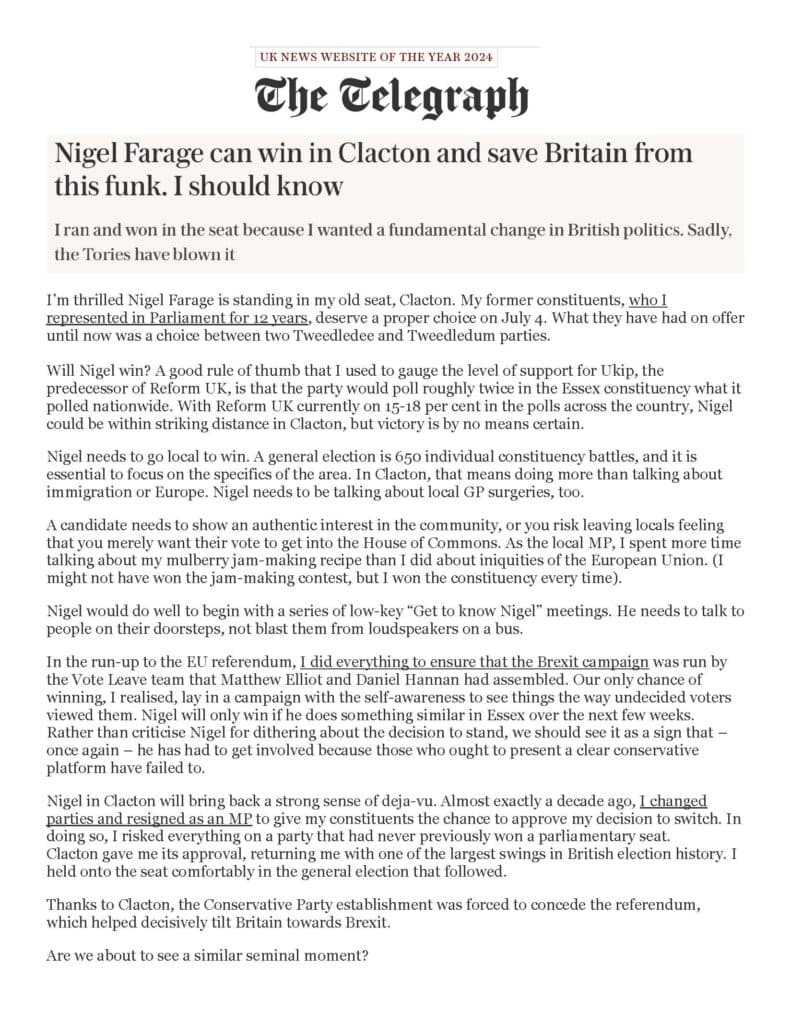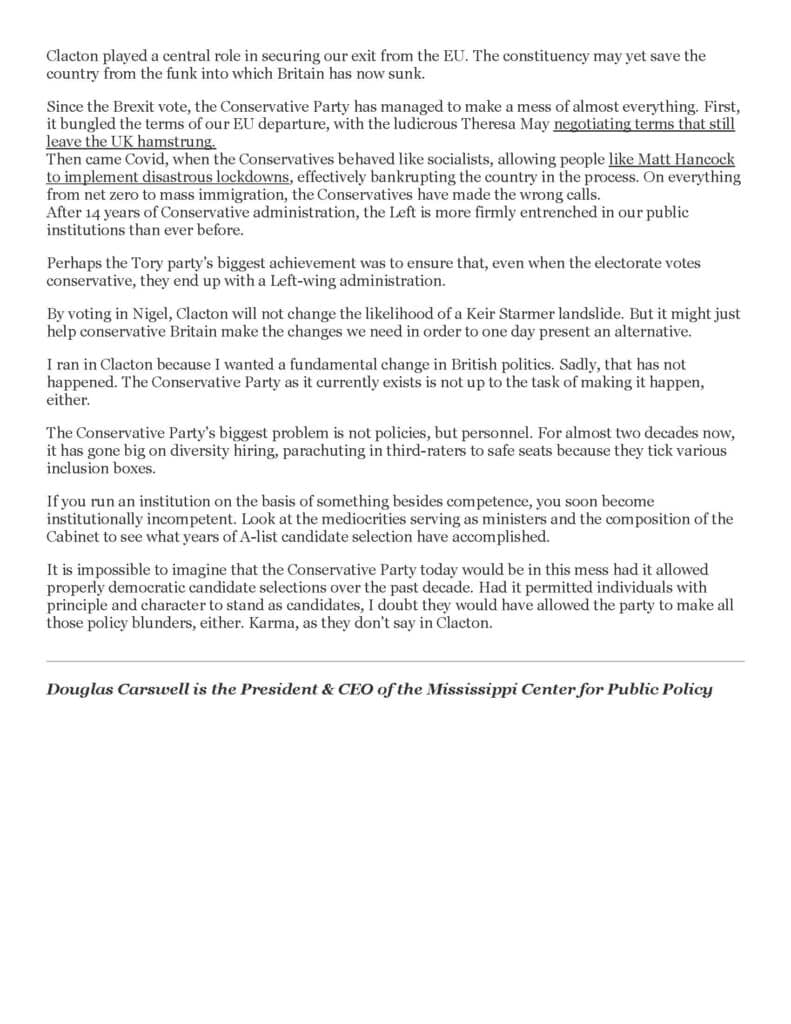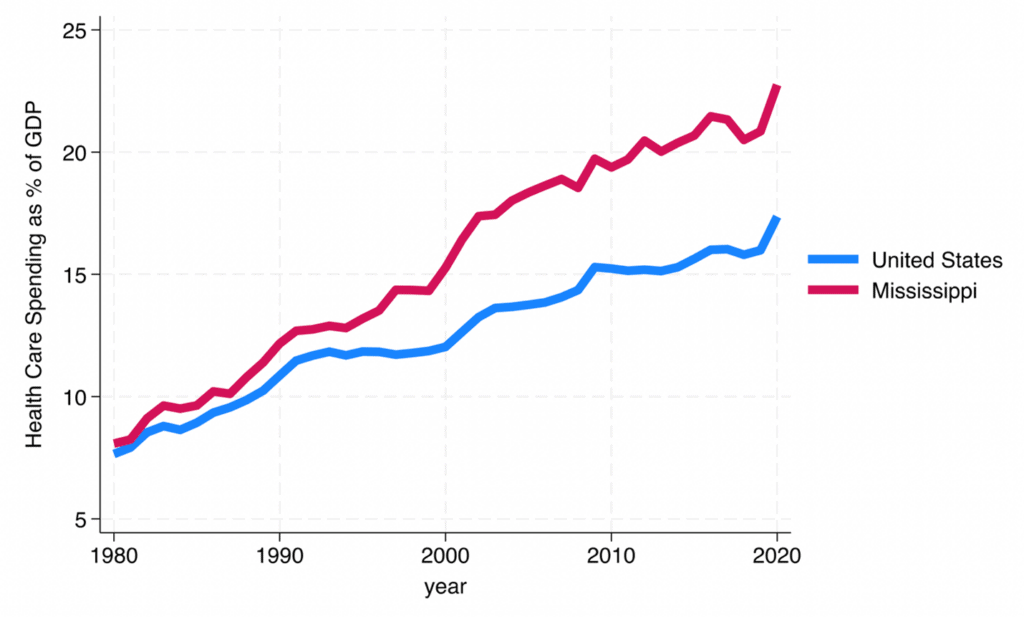Trump or Kamala? We’ll know who’s won in just a few days.
Whoever is elected the next President, we can count on the fact that supporters of the losing candidate won’t take it well. So polarized is our politics, supporters of the defeated candidate may despair. Trump or Kamala, there’s going to be an outbreak of doomerism in the days that follow. Many may wallow in pessimism. Some might even sound like they are willing Bad Things on America merely to vindicate their own political preferences. Don’t.
Whatever happens, Americans should avoid catastrophizing about the outcome. Life in this country has been getting better over the past few decades, despite rather than because of some of the politicians America has had.
Steve Pinker, the cognitive scientist, reminds us of this with a series of graphs he produced, showing how life has improved in America since the early 1970s. Output has shot up 321% since 1970, and the population increased by 63%. America’s industrial output today is approximately twice what it was in 1980. It's nearly three times what it was when Lyndon Johnson was in the White House. So much for the myth of American “de-industrialization”. Life expectancy is also up. Homicide, too, is down.
Over the past five decades, poverty in America has plummeted. Among those officially classified as “poor”, 99 percent live now in homes that have electricity, water and a fridge. 95 percent have a television. 88 percent have a phone. 71 percent own a car. And 70 percent have air conditioning.
In the early 1970s, many Americans simply didn’t have many of these things. In the late 1970s, to buy a 14-inch television, the average American earning the average wage would have needed to work 70 hours to earn enough. Today, a vastly better TV can be purchased for the equivalent of 4 hours of work.
The first cell phones in the early 1980s retailed for almost $4,000 - or over $10,000 in today’s prices. They needed re-charging after 30 minutes. Today, almost every American can afford a far better cell phone for a fraction of the cost.
America has 50 states, and thanks to Article 10 of the Constitution, those powers not “specifically given to the federal government, nor withheld from the states, are reserved to those respective states, or to the people at large”. Perhaps it is time to abide by that Amendment?
Stay true to America’s Founding Principles, and America will, I hope, continue to prosper whoever lives at 1600 Pennsylvania Avenue. If the question of who lives in the White House for the next four years is overshadowing everything across the country, maybe it’s time to listen to the former Texas Governor, Rick Perry, who once suggested that we ought to make Washington as inconsequential as possible.
What’s the biggest challenge America faces?
You might think it is $35 trillion of national debt? Or maybe you imagine its uncontrolled immigration? How about inflation, which is still stubbornly high? These are all really important problems, but they are not impossible to solve. If there is the political will, we could cut government spending dramatically to close the deficit. Who says we need to have all those federal agencies and welfare programs?
Immigration laws could actually be enforced if the federal government put its mind to it. What do you think Japan does to illegal migrants who outstay their welcome? Inflation can be tamed. Ronald Reagan showed this was possible back in the early 1980s.
What America cannot do is fix these problems if young Americans grow up thinking the worst about their country.
Over the past generation, the radical left has slowly marched through America’s institutions. They have captured many colleges and classrooms, promoting an extreme intersectional ideology. Young Americans have been taught that their country is always in the wrong. Instead of celebrating this country’s history, they have been invited to judge everyone and everything that happened by the standards of today. This has demoralized America, and is sapping the country’s confidence.
That is why the Mississippi Center for Public Policy, as part of a national movement to push back against the ‘woke’ tide, runs the Mississippi Leadership Academy. This two-part course aimed at high school students is the perfect antidote to ‘woke’ with courses on:
• The moral case for the free market.
• Ethical Leadership.
• Opportunity and our state.
• How the legislative process works.
• American Exceptionalism.
• The Meaning of the Declaration of Independence.
Previous speakers have included Attorney General, Lynn Fitch, State Auditor, Shad White and leading academics. Our Academy is designed to equip students with the skills and knowledge necessary to be effective change agents in our state. Those that take part have the opportunity to meet state leaders, and in previous years, a number of those that graduated went on the intern with state leaders.
Do you have children or grandchildren that would benefit from taking part? Please forward this email to them with details on how to sign up below! The two-part course will take place at our Jackson offices on Saturday October 12th and Saturday November 9th, between 10am and 3pm.
Hurry to apply now before places fill up!
Education is the number one thing we need to improve in Mississippi.
That’s why MCPP just launched “Move Up, Mississippi”, a campaign aimed at changing our education system for the better.

Mississippi education is only going to improve if we accept the truth about how things really are:
- 4 in 10 fourth graders would struggle to read this sentence. That’s right. 4 in 10 fourth graders fail to attain the basic reading standard in 2022.
- 7 in 10 fourth grade kids in Mississippi were not proficient in reading in 2022.
- 8 in 10 eighth grade kids in Mississippi were not proficient in math in 2022.
Rather than getting better, the rate of chronic absenteeism in Mississippi schools has got worse.
In 2022-23, over 100,000 students regularly skipped school, up from 70,000 in 2016-17.
So, what’s the solution?
What we need is school choice. Mississippi is now surrounded by states that have school choice. It is transforming education for the better. Let’s not get left behind…..
School Choice would mean every family gets to decide where their share of the state education budget is spent. It would mean that the values being taught in your child’s classroom would have to align with the values of Mississippi families.
To find out what school choice would mean for you and your family, visit moveupms.com
Arkansas, Louisiana and Alabama have done more to improve education in 12 months than Mississippi has achieved in 12 years. Sign up and join our movement if you believe it is time to change that!


MCPP President and CEO, Douglas Carswell, had the opportunity to speak at the Winona Rotary Club this past Friday.

Detailing MCPP's post-session plans, Douglas discussed our initiatives to combat DEI in our state universities, uncover the disincentives that welfare poses against full-time employment, and the newly passed Mississippi Student Funding Formula.
Did you know that Mississippi spends a higher share of our overall wealth on healthcare than almost any other state in America? Yet despite this, we still have some of the worst health outcomes in the country.

Source: AFP Mississippi report on Certificate of Need, James Bailey
Some believe that the answer is to spend an even larger amount by expanding Medicaid. Mississippi’s House of Representatives has just voted to do precisely that.
The debate over Medicaid expansion now appears to hinge on whether under the expansion scheme there will be any realistic work requirement. Critics fear that without a robust requirement for recipients of free health care to be in work, Medicaid expansion is little more than a something-for-nothing system of soft socialism.
It remains to be seen if the Senate will support the House’s bill – and if it will do so by a large enough margin to overturn any future gubernatorial veto.
There is, however, another proposal that has attracted far less attention that really would improve healthcare in our state.
Healthcare in Mississippi is deliberately restricted by a set of laws known as Certificate of Need, or CON, laws. These laws require anyone wanting to expand existing services or offer new services to apply for a Certificate of Need permit. By not issuing permits to new operators, competitors are kept out of the market - which suits the existing providers.
Our recent report on Certificate of Need reform shows how harmful this red tape can be. If we removed this protectionist red tape, we would get far more bang for our buck, however much the legislature decided to spend on Medicaid.
Florida, Tennessee and both North & South Carolina have all recently removed their CON laws – and they each have significantly better healthcare as a consequence.
Now there is a chance that Mississippi might do something similar. Rep Zuber’s excellent bill (HB 419) opens the possibility that some CON rules could be repealed.
Of course, now that the bill is before the House, every sort of parasitic vested interest is frantically lobbying to kill the bill.
Why? CON confers on existing providers a means to legally exclude the competition.
Imagine in the search engine Yahoo! had been able to use CON laws to shut down Google? Or if Friends Reunited could have used CON laws to prevent Facebook? Or if the folk that made DVDs could have used CON to prevent Netflix from taking off? CON laws have been doing precisely this to healthcare in our state.
CON laws in Mississippi are one of the last vestiges of the good ole boy system that has held Mississippi back.
Report identifies key reforms needed to boost health outcomes in Magnolia state
Removing outdated restrictions on health care would boost health care in Mississippi, according to a new report published today. Mississippi has some of the worst health outcomes in the country, and the full repeal of these anticompetitive laws in the health sector would cut costs and improve access to treatment.
For several decades, an official permit has been required for health care providers wanting to offer new services or expand existing services in 19 key areas of health care. These permits, known as Certificates of Need (CON), are also required for a provider wanting to spend more than $1.5 million on new medical equipment, relocate services from one part of the state to another, or change ownership.
Unlike other health care licensing laws already in place, the CON process is not designed primarily to assess a provider’s qualifications, safety record, or fitness. Instead, CON laws require regulators to centrally plan the health care sector by assessing whether each new applicant’s services are “needed” by the community. That question, however, can only be truly answered through the voluntary choices of practitioners and patients.
“If you want to know why Mississippi does not have medical care where it is most needed, CON laws bear much of the blame. They intentionally take away options for health care,” explained Douglas Carswell, President and CEO of the Mississippi Center for Public Policy.
“What started out a generation ago as a misguided attempt to restrict increases in health costs has become a legally-sanctioned protectionist scheme. These outdated laws are indefensible and must go.”
CON laws in Mississippi limit the provision of long term care, despite demographic change that has seen the number of elderly people needing care increase dramatically. Ambulatory services, key diagnostic services, psychiatric services and many other services are all limited by CON laws.
The report, authored by Matthew Mitchell, one of America’s leading experts on health care regulation, references overwhelming evidence which shows that CON laws mean higher spending, less access, and diminished quality of care.
Mitchell’s report identifies a road map for reform, highlighting how full abolition could be achieved. “The evidence from other states without CON laws not only shows how a Mississippi without CON would enjoy greater access to lower cost and higher quality care, but it also gives us a roadmap for how to do it. In the report, I talk about 11 different strategies for reform,” said Mitchell.
“The Governor and the new Speaker have both committed to improving health outcomes in Mississippi by repealing restrictive practices. We are excited to see legislation aimed at CON repeal, as well as action by the Board of Health to remove the red tape,” added Carswell.
